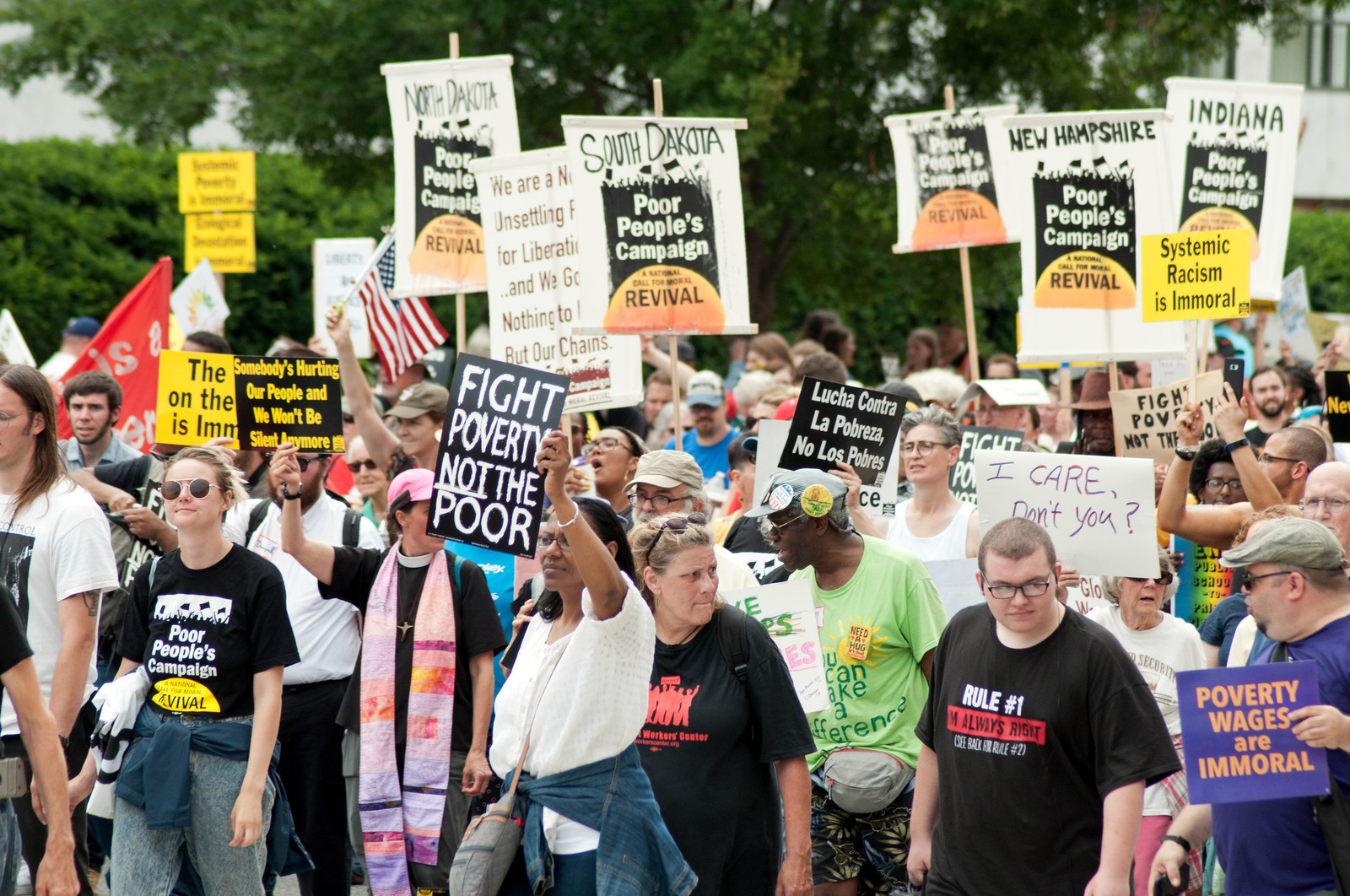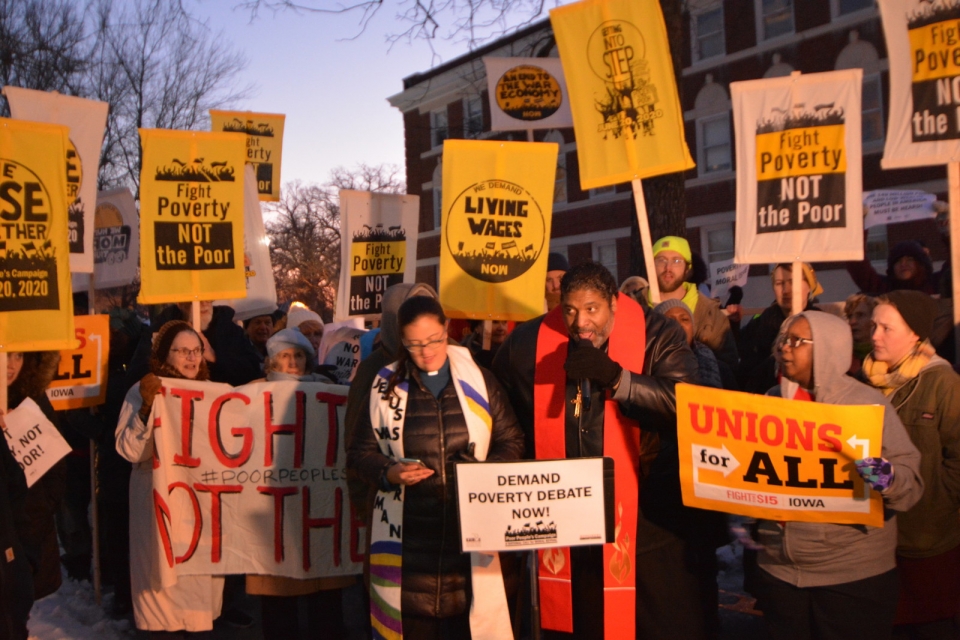
Poor People's Campaign march in Washington, D.C. in 2018 Bryan Vana / AFSC
More than 50 years ago, the Rev. Dr. Martin Luther King, Jr. warned that “a nation that continues year after year to spend more money on military defense than on programs of social uplift is approaching spiritual death.”
Dr. King’s moral equation—spoken at a time when the U.S. was raining bombs and napalm on the people of Vietnam—still applies today. In December 2019, Congress approved more than $738 billion in military spending, and under the Trump administration, tensions with other countries have intensified, raising the potential for conflict.
Since 2018, AFSC has supported the new Poor People’s Campaign, a mass mobilization inspired by King’s vision and led by poor and working people to end systemic racism, poverty, ecological devastation, and militarism. On June 20, we will join thousands from across the U.S. to march on Washington, D.C.—one part of our ongoing work to demand lawmakers rethink our nation’s budget priorities and adopt the campaign’s moral agenda (learn more here).
As the Poor People’s Campaign noted in its report on poverty: “Since Vietnam, the United States has waged an ongoing war against diffuse enemies, siphoning massive resources away from social needs. Out of every dollar in federal discretionary spending, 53 cents [go] towards the military, with just 15 cents on anti-poverty programs.”

That’s one reason why poverty has actually gotten worse in the five decades since Dr. King died while standing with striking garbage collectors in Memphis. Excessive military spending equals worse schools, deteriorating housing, decaying infrastructure, and a frayed social safety net.
We also know that aerial bombardment equals civilian deaths. Consumption of fossil fuel by naval vessels and military aircraft equals tons of carbon injected into the atmosphere. War equals ecological devastation. And extreme violence equals lasting trauma for both the perpetrators and the surviving victims.
But there’s another illusion—impossible to avoid in hundreds of communities across the country—which says military spending equals jobs. For a case in point, in New Hampshire, BAE Systems, with more than 6,000 employees, is one of the largest employers in the state. It also matches charitable donations from employees and provides education grants, and a BAE executive sits on the board of the local United Way. In other words, BAE looks like a good corporate citizen with a billion-dollar annual impact on New Hampshire’s economy.
But like the wages it pays to its workers, BAE’s largesse is a product of the war economy, specifically from selling electronic parts for bombs, aircraft, and other technology to the Pentagon and other weapons makers. BAE is among the 10 largest Pentagon contractors and, according to Defense News, is now the seventh largest military contractor in the world. It spent nearly $4 million on lobbying in 2019, according to the Center for Responsive Politics.
BAE’s former president was the Republican candidate for governor of New Hampshire in 2014. After leaving BAE, its former director of public affairs served as head of the state’s Department of Resources and Economic Development, which encouraged foreign sales of locally produced military hardware.
BAE is a prime example of what President Eisenhower called the “military industrial complex.” While the jobs it creates are real, the military spending equals jobs equation doesn’t hold up when we ask what would happen if the funds were spent elsewhere. According to University of Massachusetts economist Heidi Garrett-Peltier, “for the same amount of spending, clean energy and infrastructure create 40 percent more jobs than the military, healthcare creates 100% more, and education 120% more.”
We might say that the equations that join military spending to jobs can be disproved. But that’s not just a mathematical process—it’s a moral and political one. More than 50 years after the first Poor People’s Campaign, it’s well past time to tend to our spiritual health by changing our nation’s priorities. We don’t have as much to lose as we might fear, and we have a lot of ground—moral and economic—to gain.
Now is the time for each of us to join the new Poor People’s Campaign in working to recast our nation’s politics in a moral framework.
Join us!
Mass Poor People’s Assembly & Moral March
Saturday, June 20
Join AFSC and the Poor People’s Campaign in Washington, D.C.! Learn more
April 24-26
On the eve of the Nuclear Nonproliferation Treaty (NPT) Review Conference at the United Nations, join AFSC, the Poor People's Campaign, partners, and thousands of individuals in New York City for the World Conference and mass mobilization for nuclear disarmament, climate, justice, and peace.
Our gathering is a unique opportunity for nuclear disarmament activists, allied movements and organizations, and others committed to eliminating nuclear weapons to amplify our demands to the review conference. Learn more.